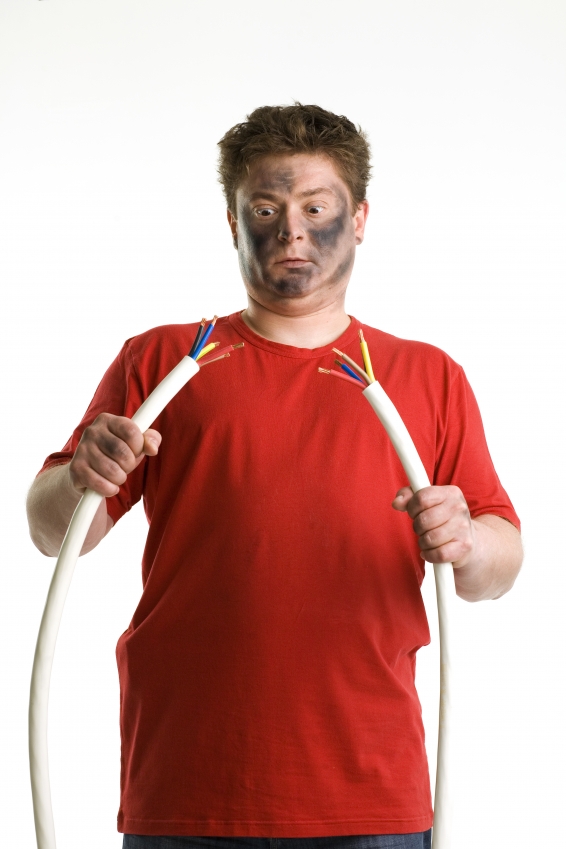40 Years After Moon Landing: Why Aren't People Smarter?

Editor's Note: Forty years ago this month, humans landed on the moon for the first time. We asked Benjamin Radford why, four decades later, humans have not become any smarter.
A look at old periodicals reveals something very interesting about human nature. Newspapers and magazines from the early 1900s were full of advertisements for instant weight loss gizmos, miracle cures, and all other forms of self-evident quackery. A century later, this stuff is still being advertised — and lots of people are buying.
You would think that by now people would know that you can't lose 10 pounds a week taking a "breakthrough" miracle pill, and you can't earn $50,000 a week working from home in your spare time (at least not legally).
Despite a long tradition of free, compulsory public education (and more college graduates than ever), as a whole we don't seem to be getting much smarter.
Many of us still buy the newest fad items and get suckered into the latest conspiracy theory. We still fall for the same logical traps, the same wacky ideas, the same old discredited snake oil in shiny new bottles that plagued our forefathers—and their forefathers.
Why? If we can put a man on the moon, why can't we rise above bad thinking?
Education
Sign up for the Live Science daily newsletter now
Get the world’s most fascinating discoveries delivered straight to your inbox.
Education is a big part of the problem.
Our educational system tends to focus on rote facts and memorization: names, dates, places, and events. It is easy to teach children basic facts, and to test their knowledge of those facts; either students know the capital of Argentina or they don't, and either the correct oval is darkened with graphite or it isn't. (The emphasis on "teaching to the test" also undermines critical thinking, favoring compartmentalized factual memorization over in-depth understanding.)
Being smart involves being able to understand the relationships between events, finding and questioning hidden assumptions, and so on. The fact is, most students are not taught how to think analytically and critically.
Critical thinking classes are rarely included in typical educational curriculum. The vain hope is that in the process of studying geography, math, English, biology, and so on, students will learn to think critically. But critical thinking should not be an afterthought or happy byproduct, it should be a primary goal because it is a way of thinking that can be applied to all academic subjects and areas of life.
Cognitive limitations The widespread failure to teach critical thinking (or even recognize its importance) is only part of the problem. Efforts to make our kids smarter will inevitably crash up against a biological barrier: Our brains are actually hardwired to hinder our attempts to think critically.
Critical thinking is often counterintuitive, and our brains are easily fooled.
Superstition and magical thinking come easily to us; we jump to conclusions without evidence; our biases and prejudices influence how we interpret the world. We see faces in clouds and patterns in events where they do not exist. Personal experience and vivid anecdotes are much more easily learned and remembered than facts. Our fears and emotions often override facts and logic (for example, the factual knowledge that air travel is very, very safe does little to calm many people's visceral fear of flying).
In a way, the better question is, shouldwe expect people to be any smarter?
Critical thinking is a skill, and like any skill it can be taught, practiced, and improved upon. Expecting the average person to think logically and critically is like expecting the average person to play the piano or write a book. With study and practice, almost anyone can do it with some level of proficiency, but most people don't learn how to think critically or analytically—nor are they even aware of its value.
More data, same processors
The amount of human knowledge has increased exponentially over the past few centuries. We have more information than ever before on virtually every imaginable topic, from physics to medicine to sociology. (The notable exceptions are paranormal, possibly non-existent subjects like ghosts, Bigfoot, and psychic powers; the body of knowledge about these topics has not increased at all.)
But all that data and information is useless if people can't effectively understand or apply it. Without logic, wisdom, and reasoned analysis, facts are useless.
The United States — and indeed the world — is faced with a daunting set of challenges, including climate change, influenza pandemics, warfare, the search for renewable energy, and so on. Solving these problems will require an educated public able to critically and logically analyze the issues. Hopefully that will happen, but if history is any guide, we will instead stumble and muddle through, just as we always have.
- And Another Thing: Why Can't We Cure Cancer?
- SPACE.com Special Report: The Apollo Moon Landing
- Top 10 Conspiracy Theories
Benjamin Radford is managing editor of the Skeptical Inquirer science magazine. His books, films, and other projects can be found on his website. His Bad Science column appears regularly on LiveScience.










